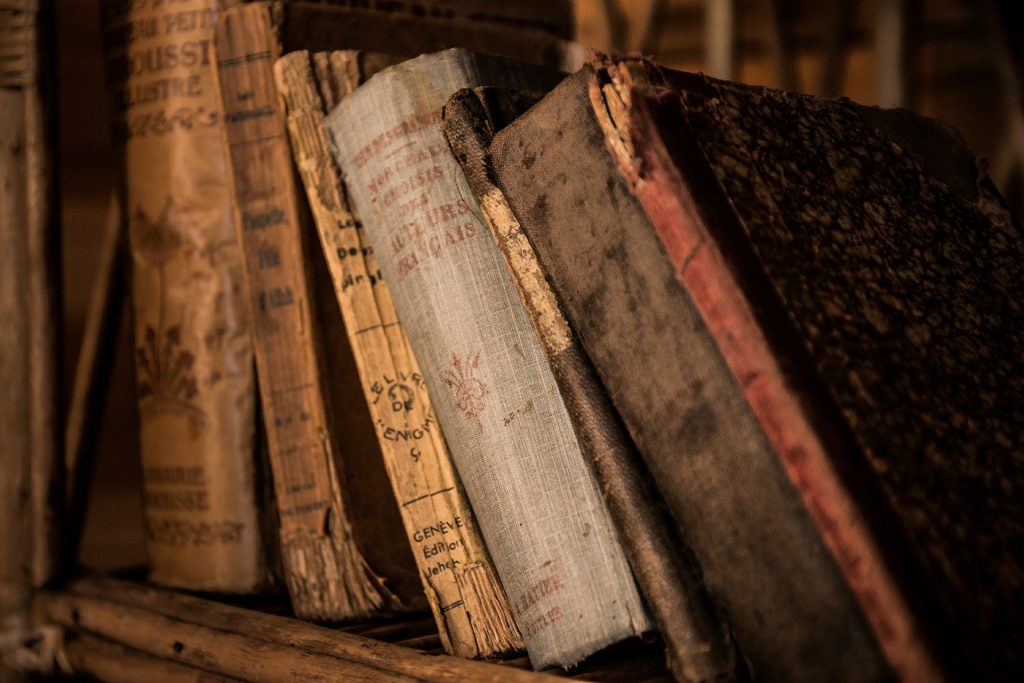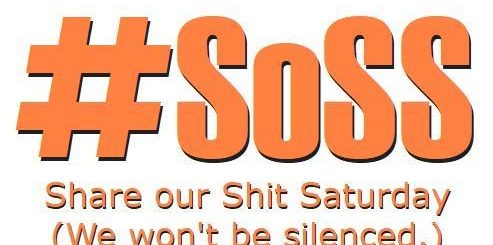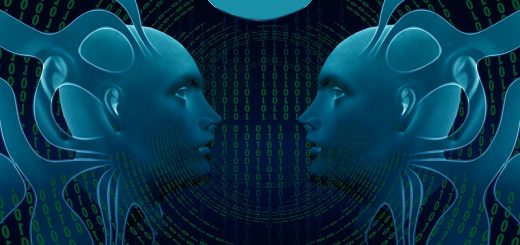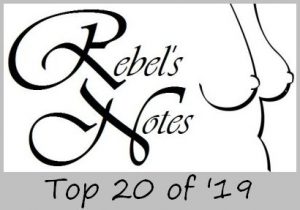What I Read and Recommend
I used to love reading. I fled into the world of books when I was a child, when I was a teenager, literature helped me widen my horizons and as an adult, books tickled my mind enough to inspire me to write more myself. And I loved reading so much that I studied literary studies at university and got some fancy degrees. My goal was to acquire my PHD and teach young eager students the importance of reading, of analysis, of literature’s impact on our minds.
Well, things did not turn out the way I had planned. I never got my PHD, although I rocked my academic studies. And with my mental health declining, my ability to read declined as well. When I once could lose myself in the pages of a book for hours upon hours, I am getting restless after 30 minutes of trying to focus these days. It is a shame, really. Reading is a fantastic distraction, it helped me through some really rough times, and has taught me so much. I am not giving up though. I have some books that I have started reading and I want to finish them. Maybe I need to accept that I have to adjust my expectations of my reading habits. So yeah, Charles Dickens and Margaret Atwood, I am going to finish reading your books, you just wait!
I have a bit of an aversion towards popular literature. I have taken classes on poplit and chicklit, and I know that there is some quality literature out there in those categories too. It’s just that I personally don’t necessarily read to be entertained. I read to be amazed, to be pushed into ways of thinking that are unfamiliar to me, and I want to learn. It is about learning about the depths of the human soul, the gruesome details of emotional pain. I like to learn about different cultures, different times. I try not to judge though. The important thing is that people read, not what they read.
So here are some fiction authors that I really love and that I would recommend. My favourite genres are realism and magic realism, so most but not all of the authors I mention belong into those categories.
Classic Literature
Classic literature is sort of a very wide category. You can trace it back all the way to the Gilgamesh epic, or Homeros, the old Romans, the eidas of the Icelandic people. Where does it start? Where does it end? For me, when I think of classic literature, I think of the literary canon. They are the pieces of literature that are seen as influential enough to impact the way people view literature. They exclude contemporary literature because you can not analyze the impact a new book has on the world, society or the literary canon, before you can look back at it from certain distance.
Johann Wolfgang von Goethe
You might think that as a German, I am supposed to love Goethe. But he actually goes over the heads of a lot of Germans. His use of language, the way he connects his works to his contemporary times and the old ancient Greek traditions? It can become confusing! I remember reading Faust and just not getting what it was all about. But there is one book, that I have already written about, that has affected me tremendously: Die Leiden des Jungen Werther (The Sorrows of Young Werther). This book is about love, pain, about rejection and tradition, about depression grief, anxiety and hopelessness, and all ending in catastrophe. I love how timeless this book is, it really talks to anyone who has ever been hopelessly in love with someone they can never be together with.
Fjodor Dostoevsky
I am bringing out the big guns here! I love realism, and if you love realism, you can’t ignore the Russians. Well, I had to choose between Dostoevsky and Tolstoy (Anna Karenina or War and Peace, anyone?) because taking up two Russians would have been too much. The reason why I went for Dostoevsky is because he is the first Russian realist I ever read and his book Crime and Punishment changed the way I looked at literature. The grey darkness of 19th century St. Petersburg, the fight for survival of the poor, despair, crime and guilt. This books really gets deep into the mind of its protagonist Rashkolnikov, and it is not an easy mind to have to read about. This book really changed me, because it taught me so much about moral choices, about the importance of our own conscious decisions, and the despair of those who live in the shadows of society.
Thomas Mann
I am giving you another German, and another author who wrote novels in the category of realism. His most famous realistic work is Magic Mountain, and I loved that one, but my favourite Thomas Mann novel is The Buddenbrocks. It is the story of a family, generations of pain and suffering, of love and happiness, and how they change with the world changing around them. The book is both entertaining, and has some depth to it as it reflects how society worked in late 19th century Germany. I’ve read the book probably 10 times, that is how much I love it!
Franz Kafka
Ah, come on, you knew I’d mention Kafka! The piece of work by Kafka that impacted me the most was the short story Metamorphosis (read it!), but the book that I really want to recommend is the The Trial. This is yet another book that you could label realism. While the novel very much reflects the world that Kafka was living in, it also has a lot of universal themes: the neverending ridiculousness of administration, the painful experiences of uncertainty, the fear of punishment, the helplessness of being stuck in the system. It is a dark, it is painful and if you are looking for a happy ending, well, this book doesn’t have one.
Emilie Brontë
I am one of those women who love Jane Eyre. I don’t love the book for its romance, but because it describes a time in history that I am very interested in: Victorian England. It is very fascinating to read about how women are treated, how traditions and conventions are prioritized and how status of class still is everything. But the most profound theme in the book is the madwoman in the attic. Mentally ill women were severely mistreated during those times, and the way Brontë weaves in the story of such a madwoman, makes me wonder if she wanted to place a mirror in front of society so they can realize what they are doing wrong, or if she just followed conventional stereotypes.
Bram Stoker
Dracula was the first vampire novel I ever read, and I got hooked. I love that it is written in 19th century style and not the way most of our contemporary fantasy or horror novels are written. The diary style made it easier for me to have a view of a vampire from an outside perspective, instead of just accepting his existence. I had great fun analyzing the novel at university, looking at the imperialistic and xenophobic themes. There is more depth to a lot of vampire fiction, than you’d think.
Contemporary Literature
Contemporary literature is written by authors of our time. They share a reality with us, and their horizon of knowledge sort of overlaps with the horizon of their readers. I personally would say that most authors who published books from the 1970s up until today could be placed into that category. We can relate to what they are saying differently than we would with the classics. It was hard to pick only a few contemporary books, but here it goes.
Patrick Süsskind
Patrick Süsskind is sort of an oddball of a writer. Ever since he has become successful, he has hidden from the public eye, doesn’t do interviews and really hates to talk about his works. His book Das Parfüm (The Perfume) is really fascinating. I remember reading it and being disgusted by what the protagonist was doing, but also so very intrigued by what was happening. The whole book is about smell, and the way Süsskind describes the smells is absolutely breathtaking. This is a story about poverty, alienation, obsession and despair. Like most of the books that I enjoy reading, there is no real happy ending. But the ending is definitely worth reading the book for!
Haruki Murakami
I love this Japanese author, he is definitely one of my favourites, and while I enjoyed his epic 1Q84 the most, I think the novel I’d recommend would be Kafka on the Shore. I mean, there are talking cats, magical paintings, and lots of great references to music. It is a book about love and connection, about the importance of all creatures, and the magical realism elements make it even more interesting. If you ever want to read Murakami, start with this book!
Sofi Oksanen
Sofi Oksanen is a Finnish author with Estonian roots. She writes about her heritage, but also about mental health, about sexual assault, LGBTQ+ and family. I love all of her books but I think my favourite one is Purge. It tells a story of the Russian occupation of Estonia, sex trafficking during the Soviet times, sexual assault and how different generations of one family handle these terrible realities. It is a very fascinating book about a time in history that not many people talk about.
Salman Rushdie
I am sure you expect me to talk about The Satanic Verses now, eh? Well, I am not. My favourite Rushdie novel is Midnight’s Children because it perfectly blends history and magic, hope and despair. It is about the connection between children from different parts of India, about the strength of the mind and the belief in a better future. I love this book because it describes a cruel reality, but also encourages everyone to try to improve that reality.
Khaled Hosseini
Most people know The Kite Runner by this Afghani writer but my favourite book by him is A Thousand Splendid Suns. It is a tale about two families in Afghanistan, about how society and gender expectations shape them, how the poor and rich are separated and how no one can escape the despair in a country controlled by religion and war, even when immigrating to another place. It is an intriguing read about a love for one’s heritage that is forever tainted by pain.
Popular Fiction
As I said above, I am not a huge fan of popular fiction in general, but I still believe that there is some very well-written fiction out there that also does very well in the marketplace. And I have two favourite authors in this category.
Anne Rice
Anne Rice and the vampire Lestat, oh my oh my. I read her series a lot during my teenage years and my favourite book by her will always be Interview with the Vampire. I can’t even tell you how often I read that book. Many many many times. I fell in love with the character Louis and his approach to living for eternity, his more philosophical ponderings and the confessions only a vampire could make. The book is sexy, dark and has depth. (and the movie adaption is absolutely fantastic)
Diana Gabaldon
Last but not least, Diana Gabaldon! I fell in love with her Outlander-series when I was a teenager and I have been religiously buying the newest book whenever it comes out. Yes, it is about time travelling and romance, but there is something different about it. It is almost like she wrote an epic about a family’s history, and the research she has done around how life really was like in 18th century Europe and America, makes it all more believable. And the sex scenes? Without question, some of the best sex scenes ever written in literature. If you want to read the Outlander-series, naturally, start with the first book!
And that is it! I think these books kind of represent how I tick when it comes to literature. I am a bit of a snobbish reader, but I don’t like to get limited by labels. To me it is important that what I read makes me think and changes me. It doesn’t necessarily need to entertain me. That might be a different approach than many other people have towards literature, but hey, in the end it is all about personal taste.












Love a few of these DS. I meant to include Perfume in mine but forgot. It was one of the inspirations to my short series “The Curse” – Jane Eyre was my friend from age 10. Can’t believe i read it for the first time then. Dracula too – my man included that in his selection. I’m very interested to read some of your other choices. Great selection xx
Thanks! And I am happy that you know The Perfume, it is such a great book!
Some of these titles were a throwback to my collegiate studies. Kafka’s Metamorphosis was required reading for more than one Lit class; The Gilgamesh was an eye-opener for me at 18.
Reading is my primary form of entertainment, so I’ll take it as it comes: I used to be a literature snob but not anymore; laughter is important in my life, and it’s hard to get that from the classics. Shakespeare had a sense of humor, which I appreciate. Dickens, not so much. I’ll read them both, but I’m also a fan of popular fiction. (Though I avoid ‘recommended’ and ‘best seller’ lists — the books found on those lists rarely appeal to me.)
Aye, I can see why one wouldn’t turn to the classics for some entertainment and some laughter! Preferences can definitely change with time, and the good thing about consuming art is that we can choose what kind of art we want to consume. I’ve always hated the high-brow/low-brow fights. It is about taste and what you want from what you read. Having said that, would I judge someone whose favourite book is Hello Kitty Must Die? Maybe. A little? 😛
You had me at Dostoevsky, I loved Crime and Punishment. It has been so long since I have read it I may have to add it to my list to go back and re-read.
Anne Rice was a favorite of mine as well during my angsty teenage years.
Haha, that should be the start of some really cool movie: You had at Dostoevsky 😛 I am so happy that someone else shares my love for that book!
And Anne Rice really created a fantastic world to flee into, for sure.
Dear Devie, you’ve expressed me so much with such an extensive list! Now I’m thinking about reading some authors from it 😉
Oh, awesome, the contemporary ones I mentioned are not as difficult as the classics 😛
I definitely have to return to this post when I start reading again. Some great recommendations!
Rebel xox
Thank you!
Terrific recommendations. I’ve only managed to read a couple of these myself, but a few have been on my must-read radar.
Thank you, Jupi!